Our Path Forward
The Department of Belonging and Social Impact
Ethical Culture Fieldston School





Compelled by a commitment to ethics and progressive pedagogy, Felix Adler, founder of Ethical Culture Fieldston School (ECFS), emphasized moral education, psychological development, and the integration of the creative and manual arts with academics. From its inception in 1878, ECFS has been coeducational and inclusive, serving a diverse population and striving to intentionally reflect diversity in all programs.
Adler believed in interrelatedness — the notion that everyone impacts those around them. Our ethics and diversity, equity, inclusion, and belonging (DEIB) curriculum and programming affirm this belief.
The Department of Belonging and Social Impact at ECFS is dedicated to fostering an inclusive environment where everyone feels seen, respected, and valued. Our mission is to engage, educate, and empower our community to excel academically, thrive socially, and contribute to a more humane and just world, ensuring that everyone experiences a true sense of belonging.
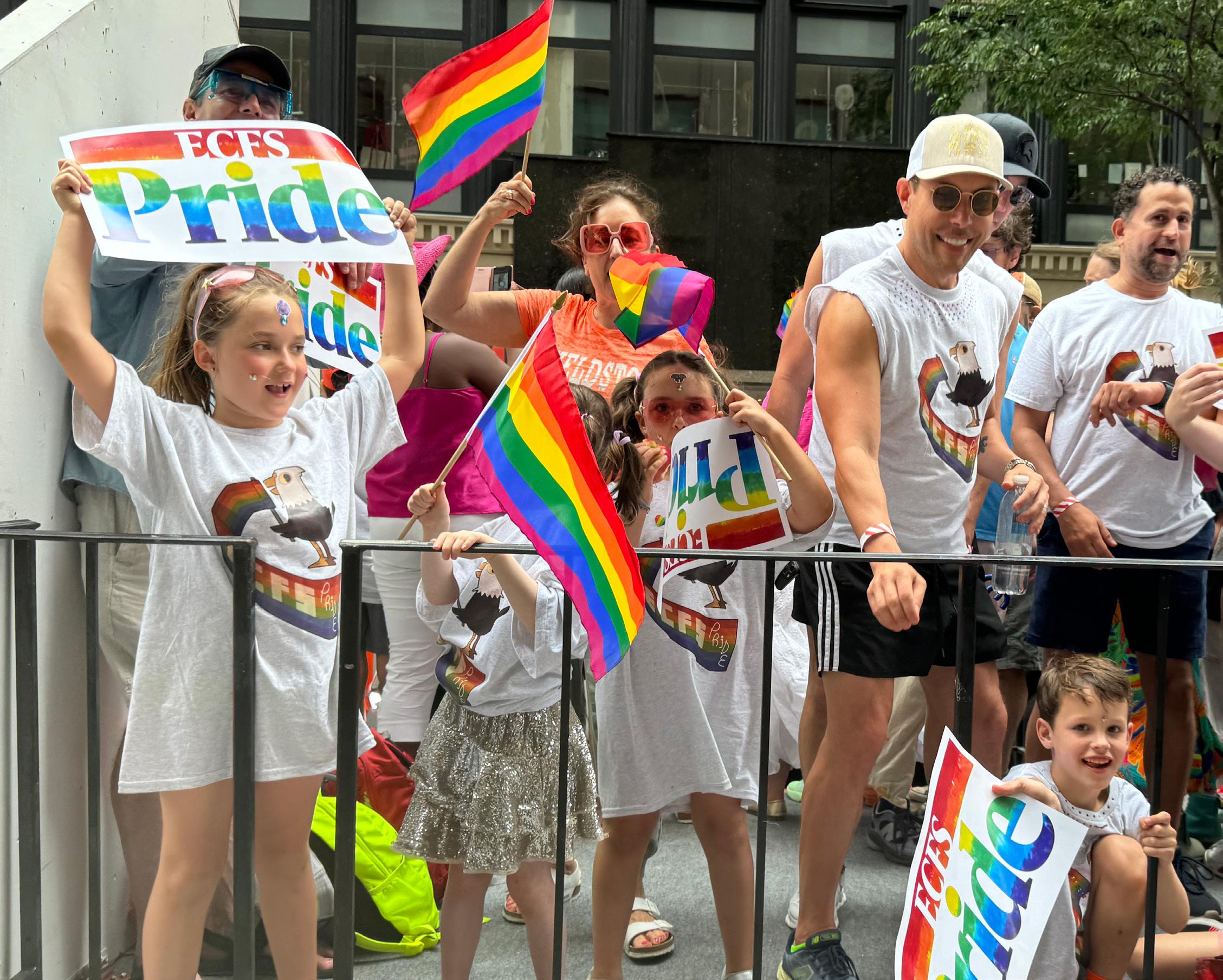
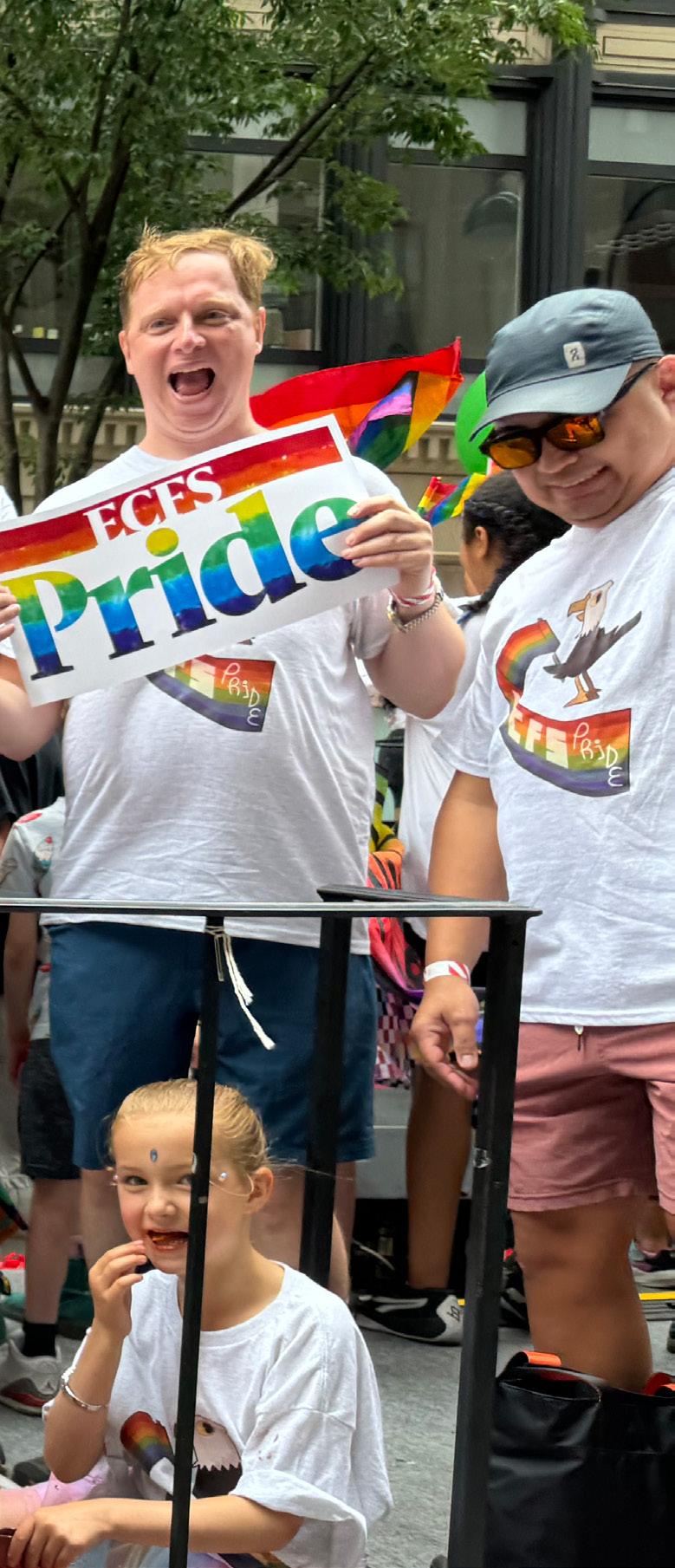
At ECFS, belonging means every community member feels valued, represented, and empowered to share their unique experiences. Aligned with our ethical commitment, we celebrate diversity in ethnicity, race, culture, religion, neurodiversity, sexual orientation, gender, and ability. Embracing this inclusive vision strengthens our school culture.
40 % of Executive Leadership and Administrative Councils are people of color
1000+ elementary school students participated in the CARe program over past 10+ years
39 % of students
54% of faculty/staff + identify as a person of color
17.5+ million in aid to 1:4 students making ECFS a leader amongst peer schools
6 consecutive years participating in the NYC Pride March
30+ DEI experts consulted with the BSI Department
10+ heritage/identity celebrations organized annually by the ECFS community
25 student affinity groups and 5 parent/guardian affinity groups across all divisions meet monthly
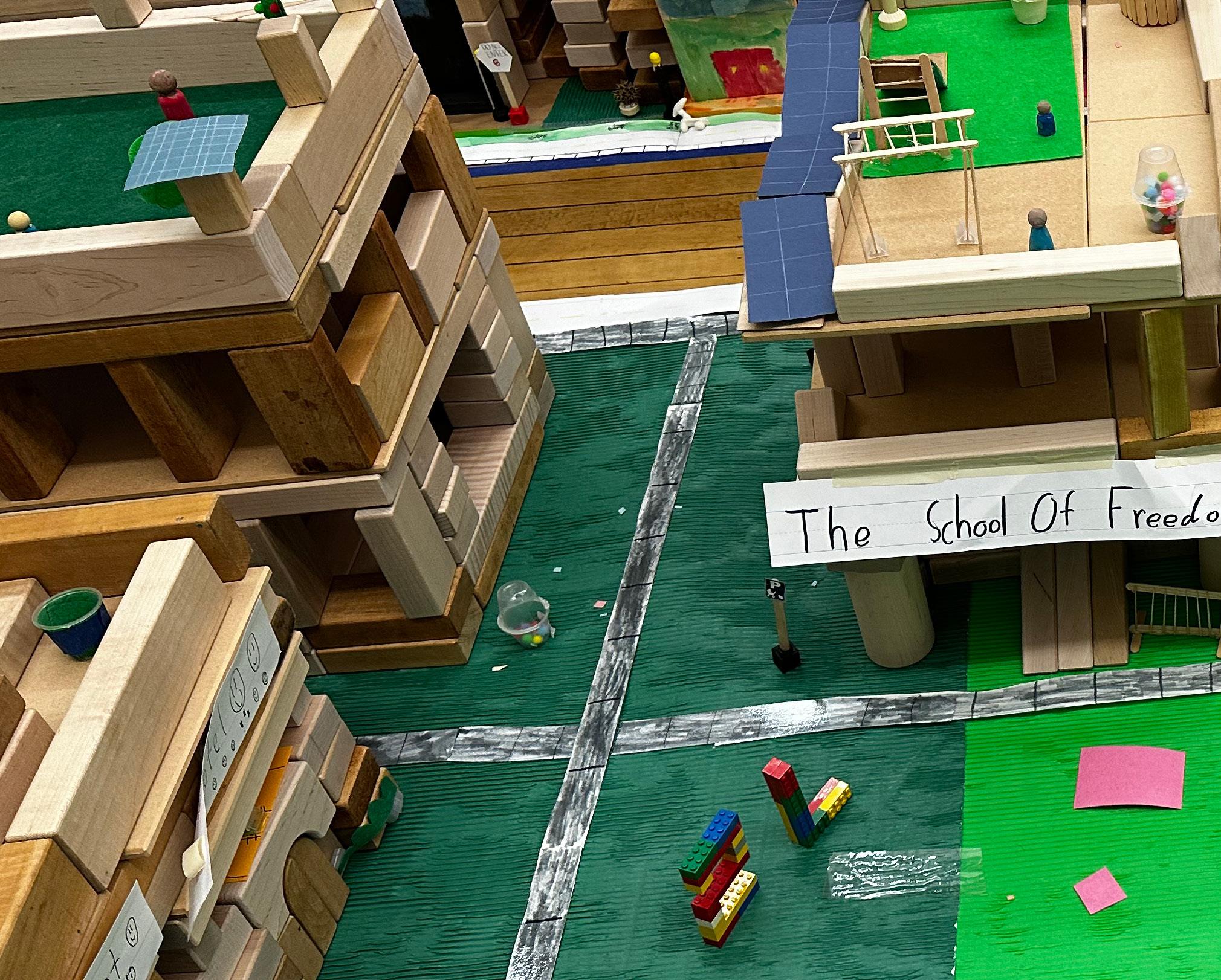
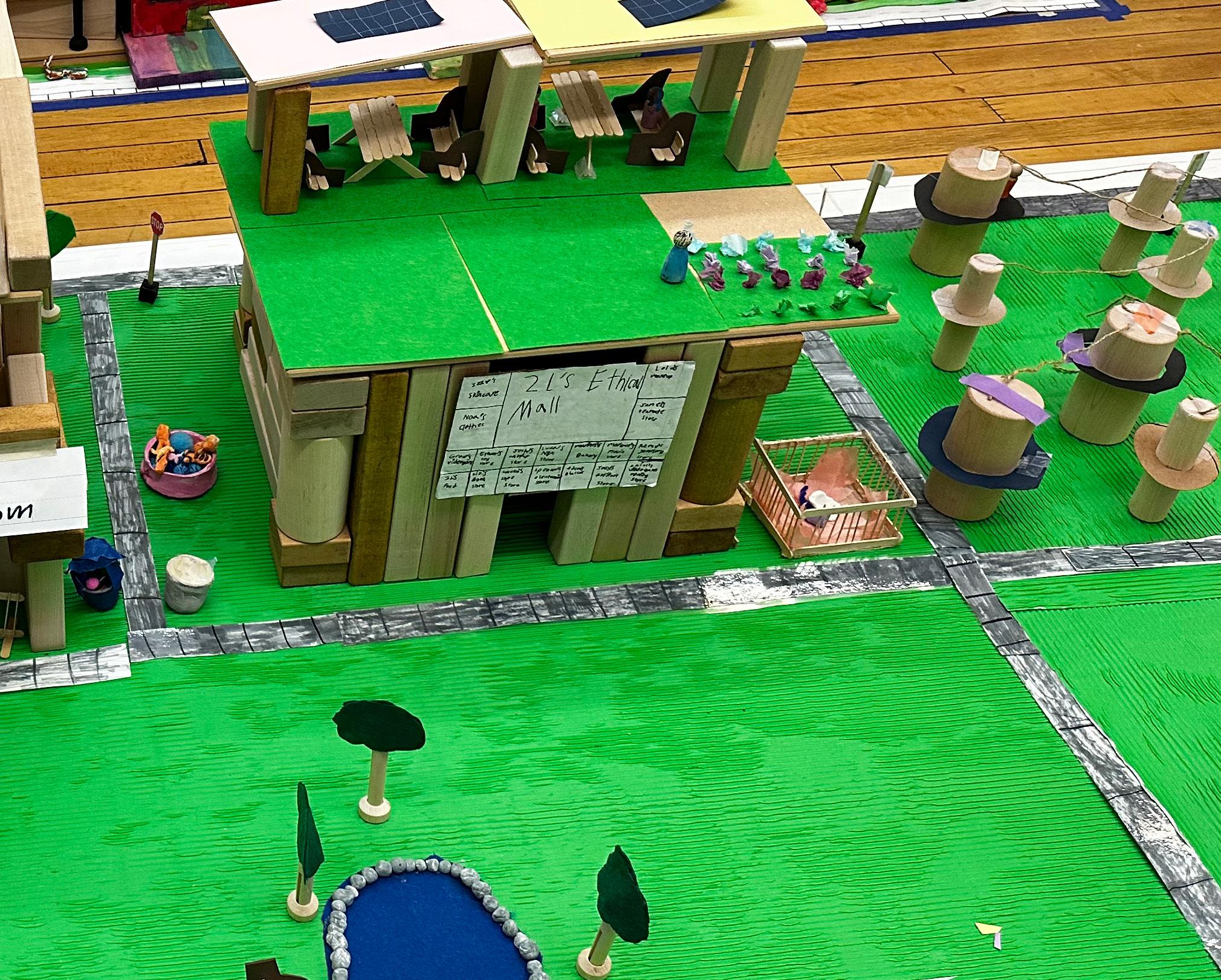
Ethical Culture 2nd Grade city building project
At ECFS, our priority is to support the healthy identity development of all our students. Establishing joy and pride, helping them to recognize systems of access and opportunity, and empowering them to take action for a fairer, more just world. These lessons nurture critical thinkers and compassionate leaders.
The BSI Department promotes Louise Derman-Sparks’ four anti-bias goals
Students understand their multifaceted identities and feel comfortable in diverse settings. Elementary students explore various identity groups through interdisciplinary units in others' experiences, and develop genuine connections.
Students gain confidence in making societal changes and will commit to taking action against bias and inequity.
Students recognize global diversity, identify differences and commonalities, and express interest in others’ experiences.
Students become aware of bias and injustice, understand its impacts, and learn about those who fought for fairness and justice.
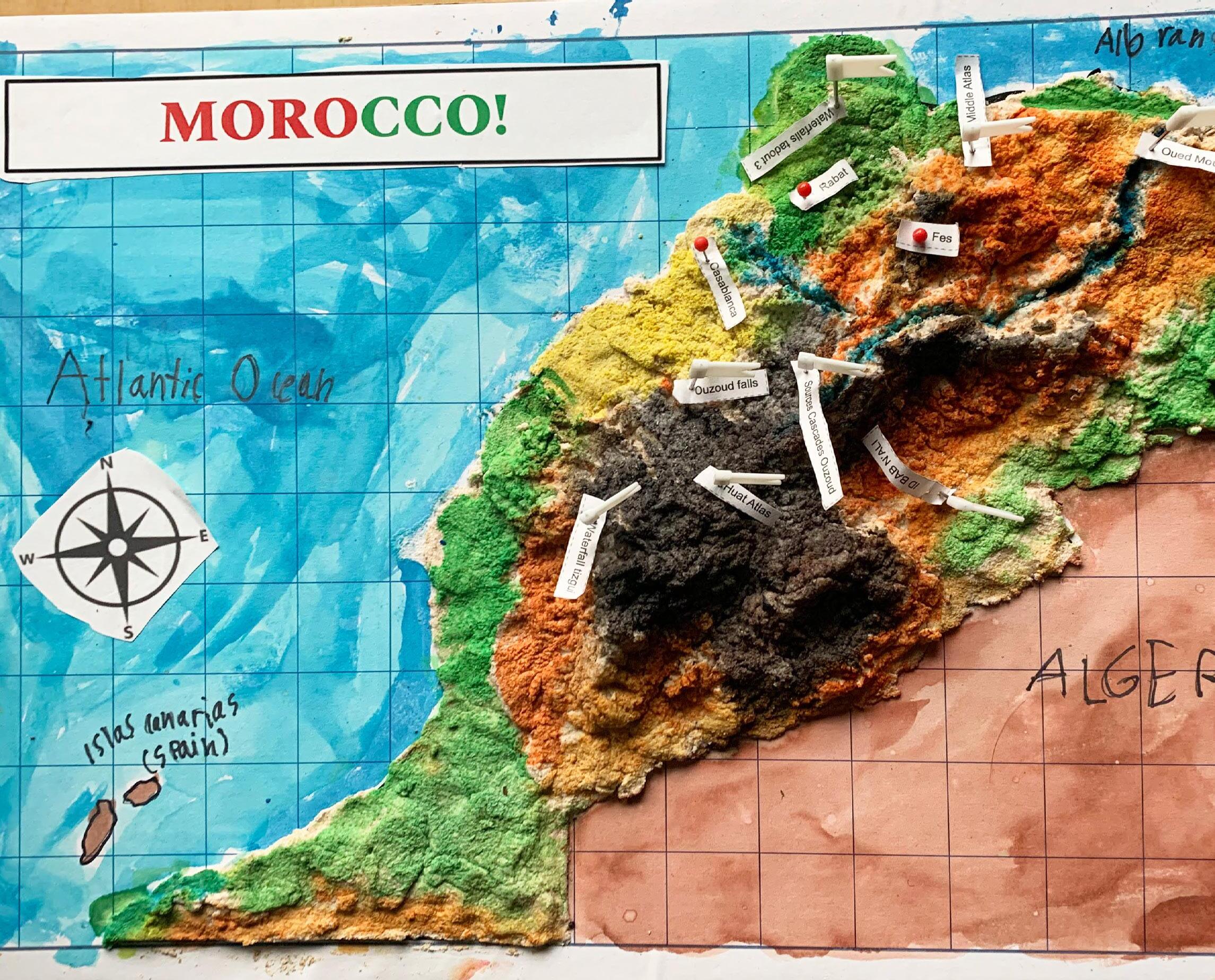
Grade study

Research shows that when teachers connect academic concepts to the everyday lives and experiences of their students, learning is more personally meaningful and effective. ECFS employs well-tested frameworks of progressive and culturally responsive education, experiential hands-on learning, anti-bias and trauma-informed practices to design and facilitate rigorous, relevant, and thoughtful experiences. Some examples of our curriculum include:
Students have a variety of opportunities to build a deep multifaceted understanding of various identity groups prior to engaging in how people have experienced history. The focus on joy, accomplishment, and multiple narratives allows students to consider the beauty in difference. This happens in multiple curricular units for example, in 2nd Grade changemakers, 3rd Grade cultural neighborhood study, 4th Grade movement of people units, and Ethics curriculum centering diverse family structures, to name a few.
In History classes, students engage in a three-year study of American History, World Geography, and Ancient History. They understand that history is not just facts and dates, but the story of who came before and how they have shaped our world. This understanding helps students cultivate their own beliefs and develop an appreciation for people, ideas, and experiences that are different from their own.
Students can join City Semester, an interdisciplinary, experiential program that lets them design their own learning experiences and tackle urban policy challenges related to sustainability and equity. Guided by the program director and ECFS teachers, students explore topics like immigration, arts, literature, and water across all five boroughs.
The BSI Department’s programming is intentionally designed to support academic growth, and social-emotional learning through skill building that enhances the learning experience in every space. These efforts aim to create a stronger community where every member feels like an active participant.



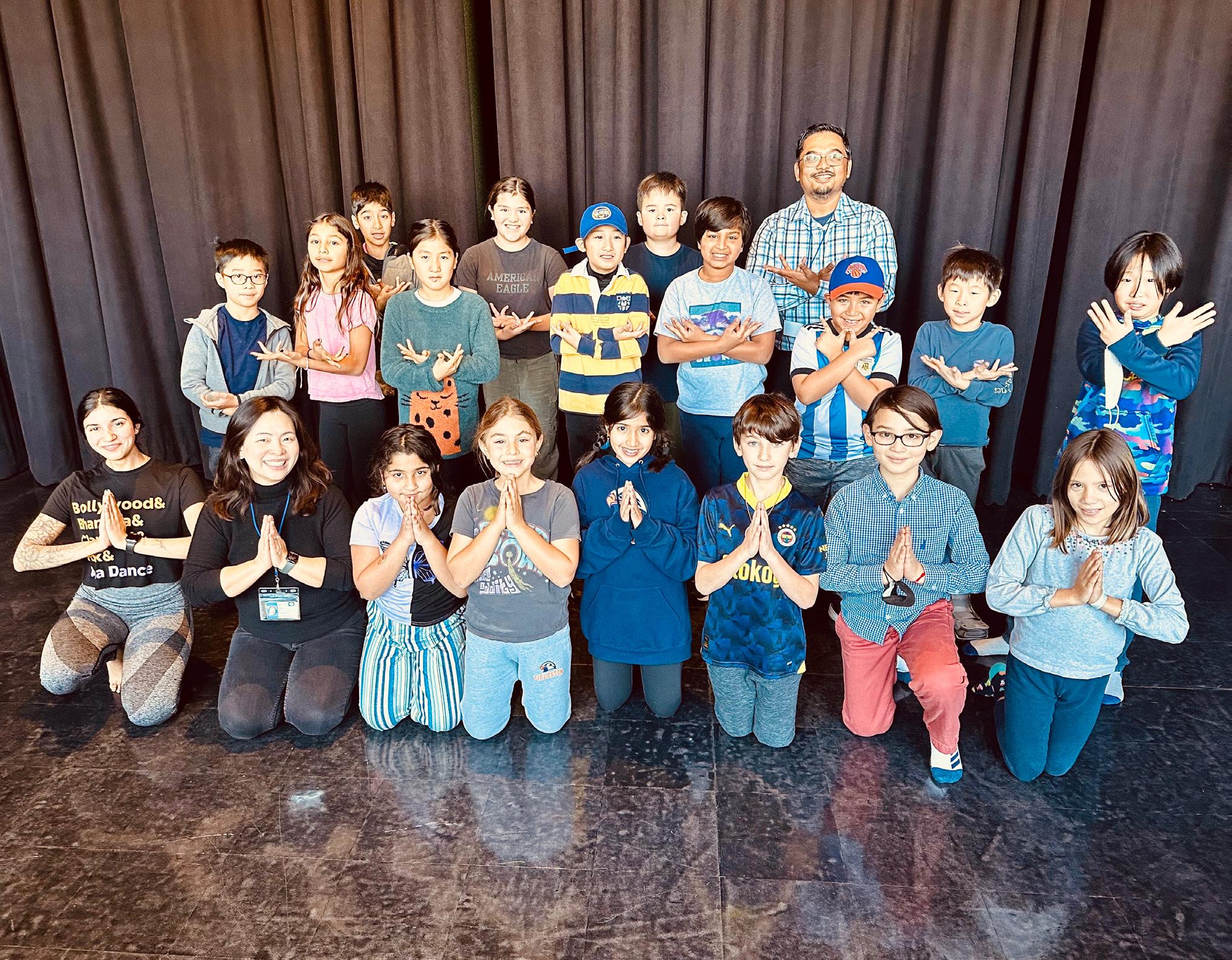
The CARe program includes cross-talk between affinity groups and features speakers, community-building groups, and activities that foster belonging.
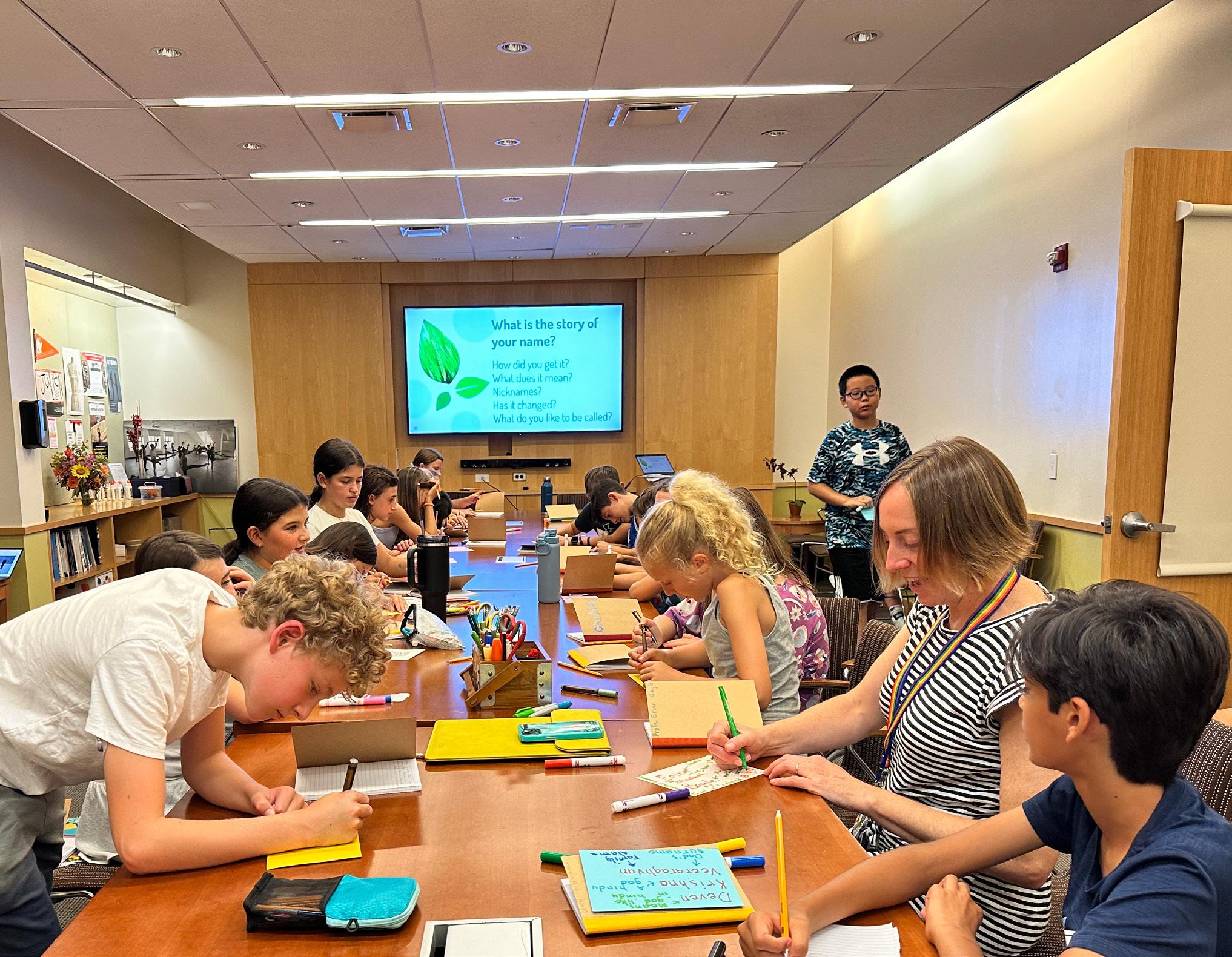
6th and 7th Graders participate in Community Conversations, a program that builds trust and improves communication skills with peers and adults, focusing on identity and vocabulary development and establishing core practices.
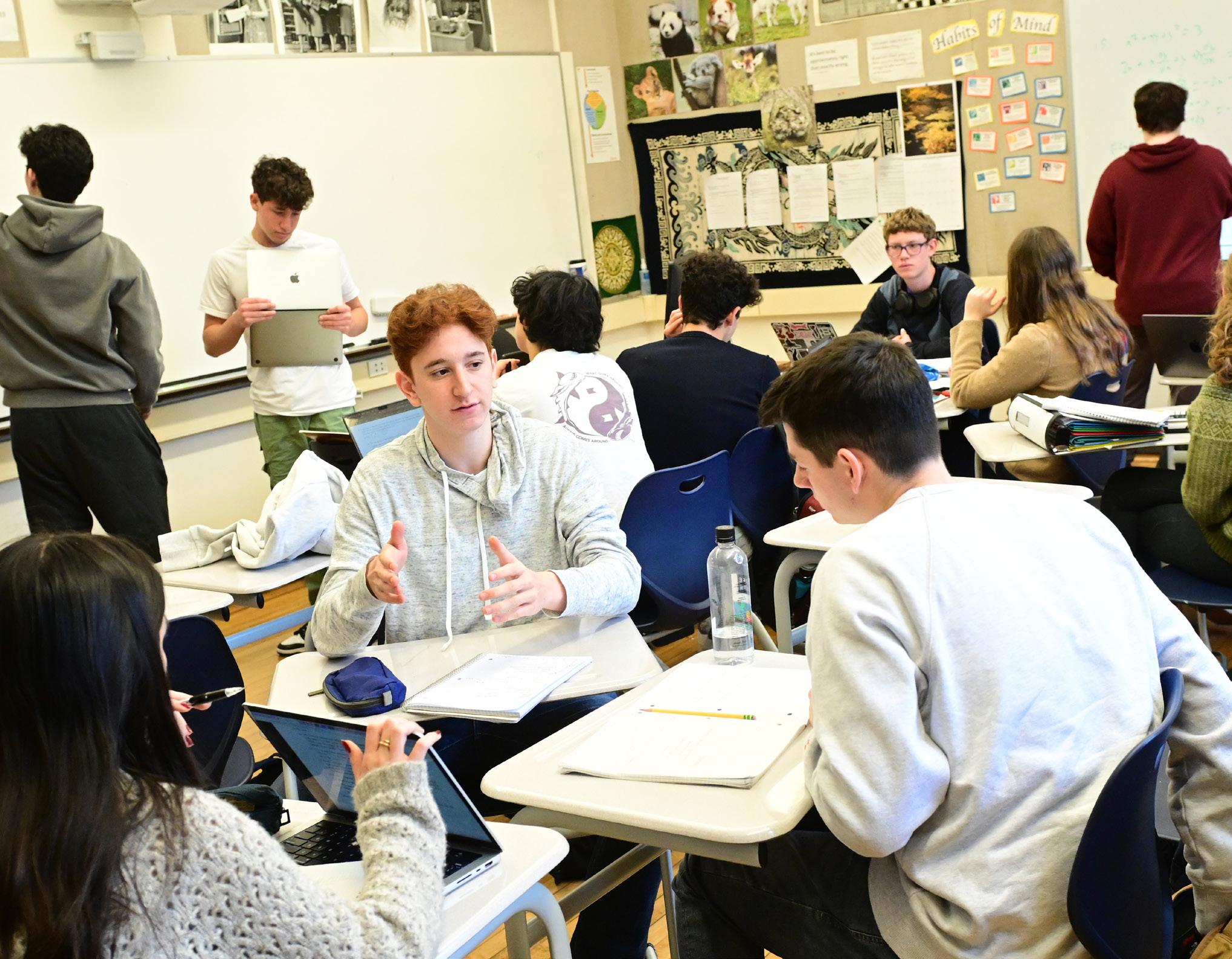
Students engage in skill-building sessions around difficult conversations, honest listening, accepting diverse perspectives, and fostering new ideas in workshops with outside experts.
All ECFS constituents support students’ development and identity exploration in age appropriate programming that is scaffolded as students grow — through curriculum, assemblies, and various clubs and affinity groups.
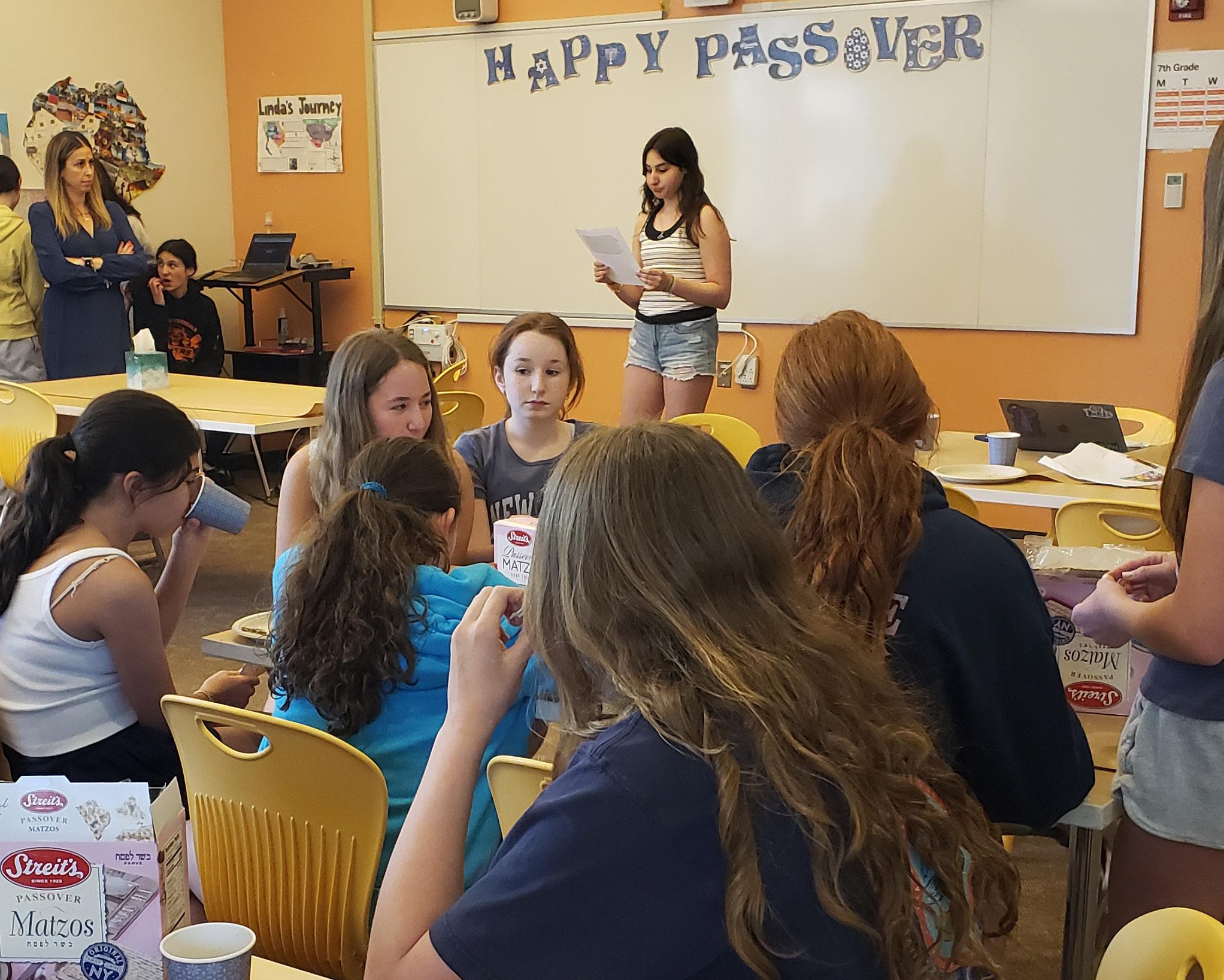

Affinity groups are gatherings of individuals who share a similar identity, providing a space for reflection, dialogue, and support, which strengthens community in light of everyone’s unique experiences. We give all children a safe way to reduce identity stress, address what they see in the world, and develop the necessary skills to build relationships and engage in dialogue across differences. We often participate in affinity groups in our daily lives, some examples include department chair meetings, religious congregations, neighborhood associations, gender-specific sports leagues, and LGBTQ+ family groups. Click here to view a comprehensive list of our student affinity groups.


Our programming is responsive to our diverse school community and works to highlight school-wide heritage and holidays through joy and learning. This form of programming includes meaningful collaboration with students, families, staff, and faculty and has resulted school-wide celebrations such as sukkah building, participation in New York City’s Pride Parade, Shabbat dinners, hosting Special Olympics invitationals, and celebrating Diwali, Black History Month, Lunar New Year, and Eid al-Fitr, amongst many others.


Fieldston Upper student clubs and affinity groups often celebrate diversity and educate their peers during assemblies. Examples include:
• Jewish Affinity Group: International Holocaust Remembrance Day assembly with video testimonials from Holocaust survivors and a report on the global rise of antisemitism
• Dance Repertory Project: Performances celebrating “50 Years of Hip-Hop”
• South Asian Affinity Group (SAAG): “Not so Stereotypical: South Asian Edition,” highlighting South Asians in diverse professions
• Latine Student Affinity Group: “Here to Stay: The Dream of Our América,” addressing microaggressions and discussing how Latine people are depicted in movies such as “Knives Out”, the DACA immigration policy, and DREAMers’ status in the United States
• African Students Association: “The Africa You Didn’t Know.” showcasing African sports history, art, music, Afrobeats, and presented the history and meaning of Pan-Africanism.
• Muslim Student Association: Ramadan Around the World
During onboarding, new faculty, staff, and administrators attend the Progressive Teaching Institute seminar, which includes DEIB-focused sessions. ECFS faculty and staff participate in extensive professional development annually. Key conferences include:
• NYSAIS People of Color Conference
• NYSAIS Student Diversity Leadership Conference
• NYC Anti-Defamation League Never is Now Conference
• NYSAIS Diversity Practitioners Conference
• NYSAIS Diversity Symposium

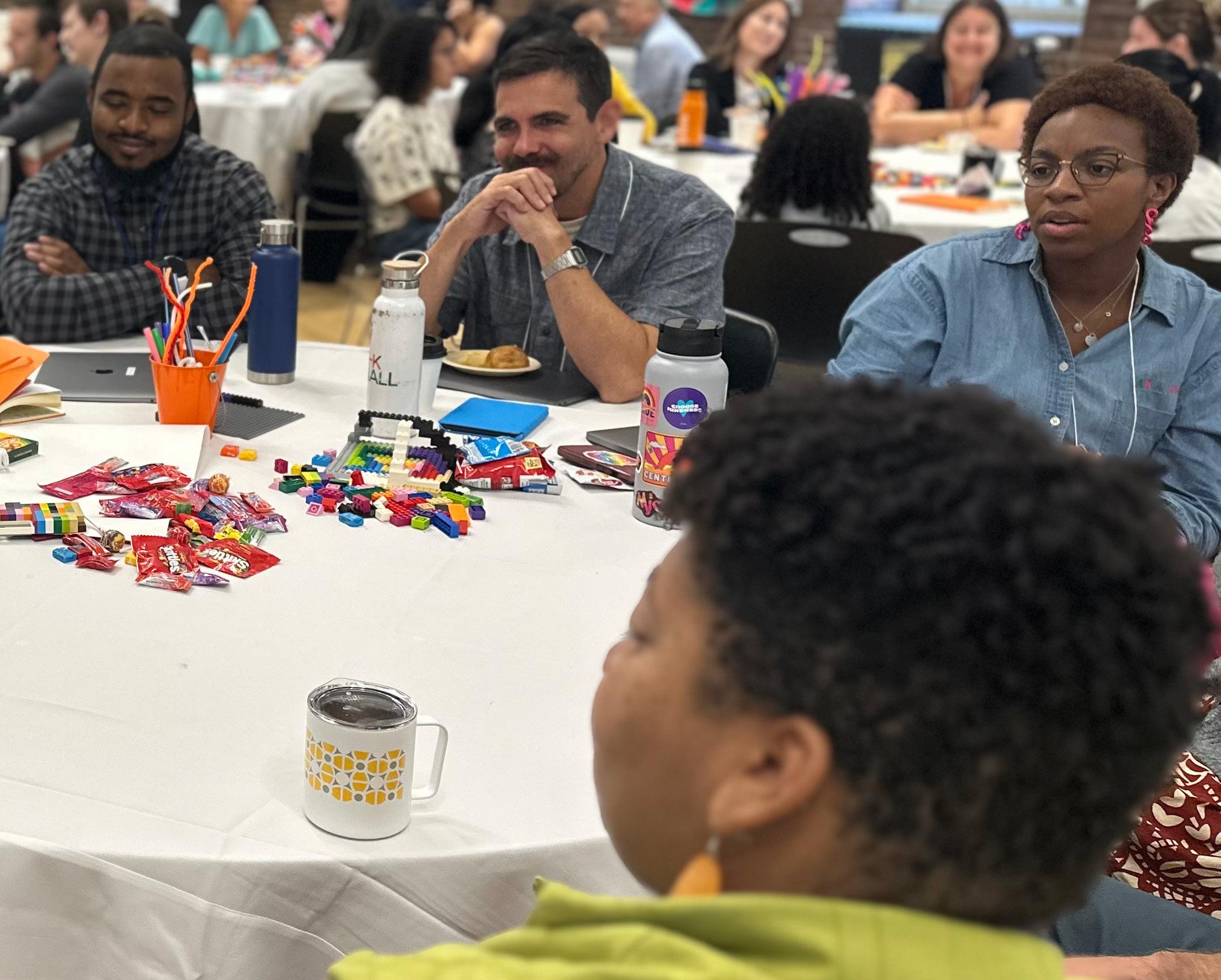
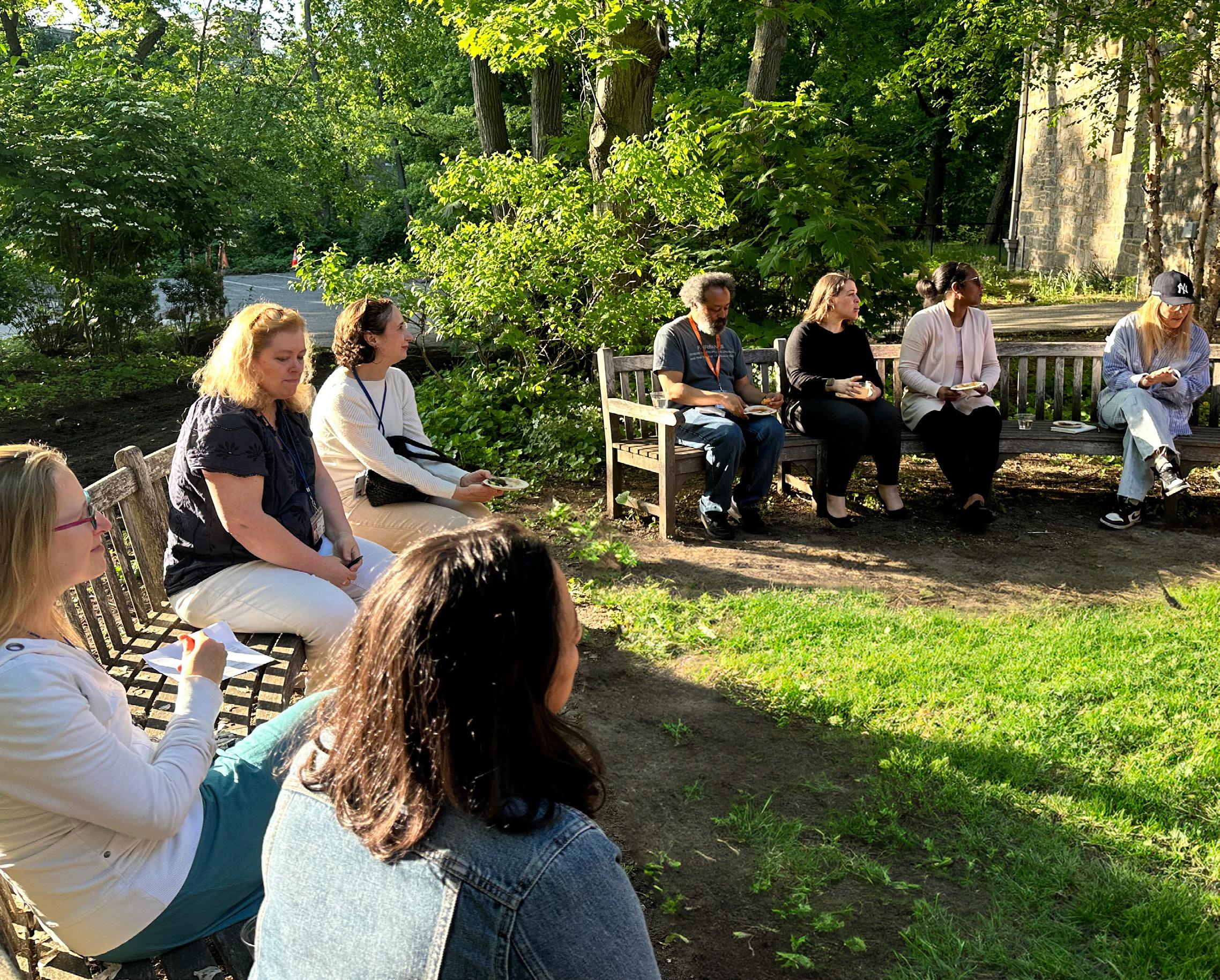

The ASMC is a diverse group of parents/guardians committed to supporting diversity, equity, and inclusion at ECFS. As part of the P+T, the ASMC serves as a liaison between the Department of Belonging and Social Impact and the parent/guardian community, organizing events and hosting speaker series with the Alumni team.
The Department of Belonging and Social Impact partners with parents/guardians to facilitate various affinity groups including:
• Jewish parent/guardian affinity group
• LGBTQ+ parent/guardian affinity group
• Parents/guardians of color affinity group
• White antiracist affinity group
Parents/guardians can join Seeking Education Equity and Diversity (SEED) groups annually. The National SEED Project promotes equity and diversity through interactive seminars focused on social justice.
Our commitment to diversity, equity, inclusion, and belonging is ongoing, always evolving, and never complete. Guided by the recommendations from Anthem of Us, a national firm that centers equity and belonging in schools and workplaces, we aim to foster more cross-cultural conversations and respectful discourse. Achieving this vision will be a collaborative effort involving every division, department, and community member.

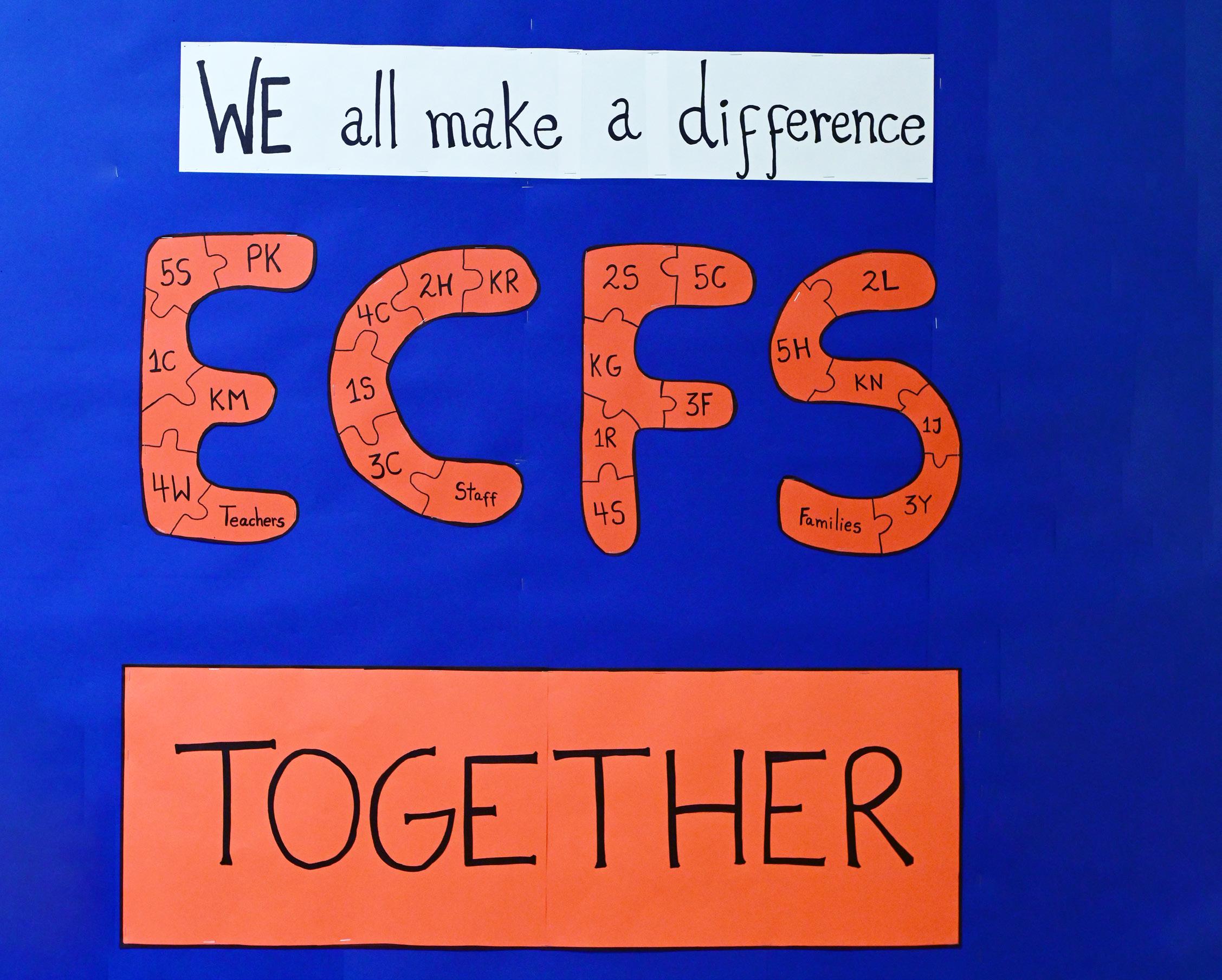
Email: bsi@ecfs.org